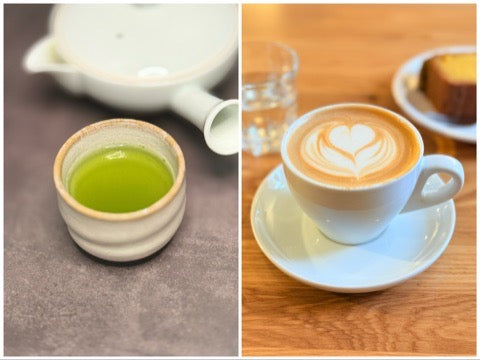Coffee or Green Tea – What Do the Japanese Prefer?

Japan is globally known for its rich tea culture – especially for premium green teas like Sencha, Matcha, or Gyokuro. But a stroll through Tokyo today reveals a different picture: cafés on every corner, coffee-to-go shops, and vending machines selling canned coffee. So what do people in Japan actually prefer – coffee or green tea?
Preferences by Age Group
The answer largely depends on age. Younger generations – especially under 30 – tend to favour coffee. Whether it’s a quick morning boost or an iced latte at a trendy café, coffee is part of the modern lifestyle.
Those aged 30 to 50 consume both, though coffee dominates professional life. However, green tea is regaining popularity, especially among the health-conscious.
People over 50 remain loyal to traditional green tea. For them, it’s a daily staple, often enjoyed at home or with meals.
Regional Differences
Geography also plays a role. In urban areas like Tokyo or Osaka, coffee is ubiquitous – driven by international chains, convenience stores, and busy work culture.
In contrast, rural areas and traditional regions such as Kyoto or Shizuoka hold on to green tea – often locally grown and culturally embedded, especially through the tea ceremony.
Conclusion
Coffee has become Japan’s most consumed hot beverage – especially among younger people in big cities. Yet green tea remains a strong cultural symbol, and its role as a mindful, healthy drink is steadily gaining traction with new audiences.
